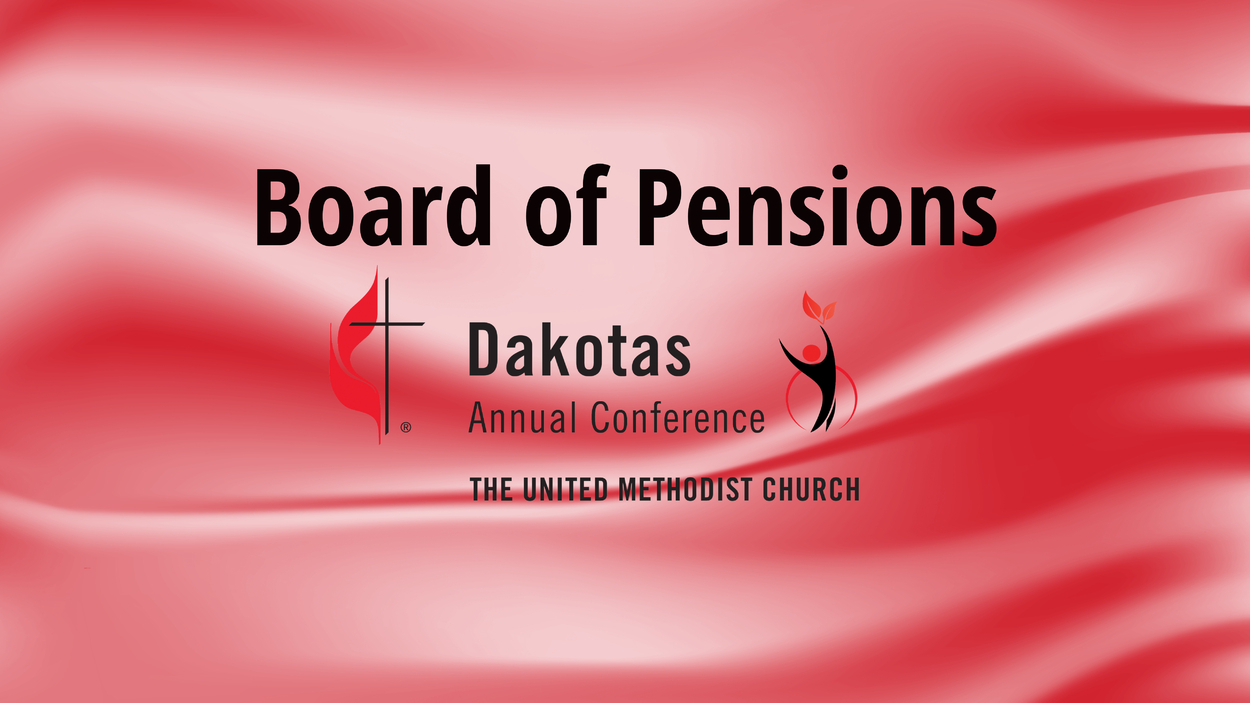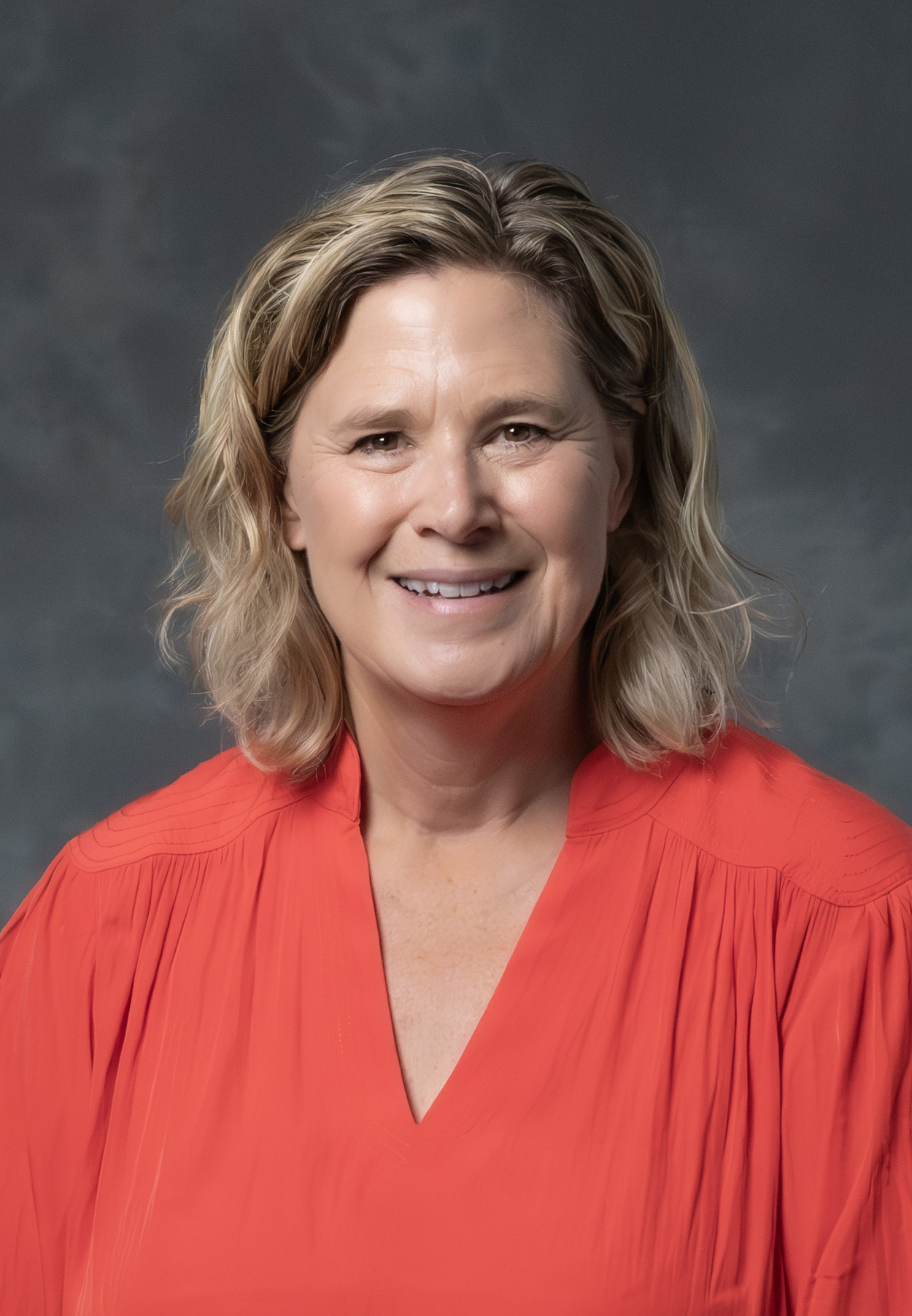
Dakotas Conference Board of Pensions good stewards for today and the future

When Anne Osborne, who serves as the chair of the Dakotas Conference Board of Pensions, is asked, what is the role of the Board of Pensions? Her reply is, "We oversee all the benefits—health and pensions, for the clergy and lay employees of the conference. We care for the people we are responsible for, and we take that job seriously. We are good stewards for today and the future." A simple response for a complex role.
The Dakotas Conference Board of Pensions is a 15-member board. The committee membership includes five clergy members, five laymen, and five laywomen. "We have this good balance on the board: clergy and lay people, men and women. Most of the members on the board aren't directly affected by the decisions that we make," said Osborne.
Anne has been a member of the Board of Pensions for 11 years. She is nearing the end of her term limit. The term limit for any board, committee, or agency in the Dakotas Conference is 12 years. At the 2023 Dakotas Annual Conference, members voted to suspend Dakota Conference Standing Rule 6.2 related to the 12-year term limit. Rule 6.2 was suspended until 2025.
Osborne answered the call to serve at a conference level when she heard of the need. "I think they had sent out a call for people to serve on the different boards in the conference. I was asked to serve on the Board of Pensions. I didn't have a lot of background in pensions and benefits. It has been a good experience, lots of learning, and the people you work with are great," said Anne.
Anne lives 30 minutes north of Valley City, North Dakota. Her address is Sibley, North Dakota. Osborne works remotely as a Project Manager for the National Wheat Foundation based in Washington, D.C.. Epworth United Methodist Church in Valley City is her church affiliation.
Some other board members, who served several years with Osborne, are ending their work. Elaine Roberts, who recently served as the chair and served three consecutive terms or 12 years, shared with members at the 29th session of the Dakotas Annual Conference, "The Dakotas Board of Pensions works with passion to care for the clergy and lay employees of the conference. We listen to what you say." Roberts also shared words of thanks for colleague Eric Walth for serving on the board for 12 years. Walth served as the secretary for the board.
As she steps into the leadership role, Anne defines transition in staff as a critical priority. Lena Stunes, the current Dakota Conference Benefits Officer, is retiring. "I think the most important thing in this next year is to find the right person to serve as the Conference Benefits Officer."
Committees have been formed to review policies and do the board's work. "The people on the board have tremendous experience and expertise. We have formed committees to use the expertise of the members. We have three committees: finance and investment, benefits, and grants. We also have an executive committee. The board meets three times a year as an entire board. The remainder of the work happens in committees.
As new members step onto the Board of Pensions and changes occur with various benefits, there is much to learn. To assist, weekly board training sessions are taking place. Anne describes the training. "We are doing board training in little snips. People attend when it works for them or watch the recording. At 4:30 each Tuesday, people join on Zoom. They watch a 10-15-minute video clip about one of our issues. The topic might be about the health plans for one week. The next week could be about the different retirement plans we are administering. We are developing the board's expertise and keeping our board meetings efficient," she said.

Anne Osborne, chair, Dakotas Conference Board of Pensions. Photo by Dave Stucke, Dakotas UMC.
The Board of Pensions experienced positive market returns on the investments made. The fortunate returns result in gifts to churches, conference employees, and the United Methodist connection.
"Our investments have done well, resulting in what we call overfunded. We've been able to be generous. We gave funds to the Central Conference African Pension Fund and the Alaska Missionary Conference. We have provided funds to pay for the benefits of the camping and conference staff. We are apportionment neutral [requesting zero dollars from the apportioned budget]. There have been rebates to the churches and bonuses to the employees. Health insurance is expensive, and the premiums keep increasing. The Board of Pensions is absorbing some of those increases. Churches and individual employees are not paying more and more for good health insurance," said Anne.
Osborne states that she is proud that clergy and lay employees have a choice of six health plans. "They can pick a plan that fits their needs. We are trying to have people take a more active role in selecting insurance and maximizing the dollars the conference provides to everyone."
The Board of Pensions recently decided to offer benefits to clergy who serve three-quarters of the time. Anne said, "When I first started on the board, pastors who serve three-quarter time, we're not eligible for health insurance. Many smaller churches in Dakotas want to offer three quarter-time appointments because that's all they can afford. But that clergy person who wants to serve needs health insurance. Some people might not be able to serve at that church if they don't have an opportunity to get a good health care plan."
The work of the Board of Pensions is a continual process of visioning and strategic decision-making, says Osborne. "We make wise decisions for the good of the whole. Everybody's not always happy with everything that we decide to offer or not offer. We are looking at a big-picture view. We consider what we can and need to do in the future. We prayerfully consider our decisions."
If you want to serve on the Board of Pensions, contact Leana Stunes or Bea Stucke. Currently, there is an opening for a layman.